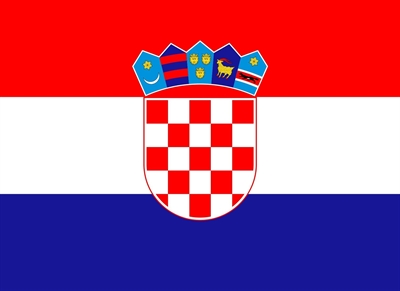Croatia - Human Rights Council - Domestic Violence - September 2014
Country: Croatia
Type: Intl Mechanism Submission
Issues: Accountability , Gender-Based Violence, International Advocacy, Policing, Women's Rights
Mechanism: UN Universal Periodic Review
Report Type: Stakeholder Report
Violence against women is a widespread problem in Croatia. According to research published in 2011, 31 percent of women in Croatia has experienced frequent domestic violence, and 44 percent has experienced it occasionally. Femicides are also a serious problem in Croatia; 11 women were killed by their male partners in 2013, and 12 women were killed by their male partners in 2012.
During its first Universal Periodic Review in November 2010, Croatia accepted the following recommendations and indicated that they had already been implemented or were in the process of implementation:
- Prosecute and convict perpetrators of domestic violence (France);
- Ensure prosecution and punishment for acts of violence against women (Ecuador); and
- Implement an effective law to protect the women and child victims of domestic violence (Indonesia).
In its mid-term report of December 2013 and in response to the recommendations, Croatia stated that its “State Attorney’s Office implements effective prosecution of perpetrators of domestic violence.” Croatia also referenced its legal framework that included the Law on Protection against Domestic Violence (LPDV) and the National Strategy for Protection against Domestic Violence, as well as its public awareness activities about domestic violence, among other things.
Although Croatia has enacted several laws to protect women from domestic violence, additional changes need to be made and challenges still exist in the implementation of those laws to effectively protect victims and hold perpetrators of domestic violence accountable. In its submission on domestic violence to the Human Rights Council in September 2014, The Advocates for Human Rights and its Croatian partner Autonomous Women’s House Zagreb highlighted the key challenges that remain, both in law and in practice, and recommended that the Croatian government:
- Train police officers, prosecutors, and judges on identifying the primary aggressor and assessing defensive injuries in order to reduce the number of dual arrests, charges, and convictions of victims of domestic violence;
- Train criminal judges on the application of eviction and restraining order safety measures under the Criminal Code and precautionary measures under the Criminal Procedure Code in domestic violence cases, and promote the use of such measures;
- Amend the Criminal Code to return Article 215A and incorporate coercive control so that domestic violence offenses do not have to be prosecuted as bodily injuries;
- Amend the Misdemeanor Act to add precautionary measures including a prohibition against stalking, harassment, and communication, and eviction, which can protect victim safety before a judgment is issued, and train and encourage judges and police officers to enact these measures;
- Promote the use and expansion of the probation system and ensure that it is supported with sufficient staff and resources;
- Amend the LPDV to redefine psychological and economic violence to ensure that domestic violence only includes those acts that threaten the victim with physical harm or cause fear of such harm and acts of coercive control;
- Ensure that the definitions of psychological and economic violence are enforced in a manner that takes into account the context, severity, the use of power and control, repetition, harassment, and overall pattern of violence that constitutes coercive control;
- Amend the LPDV to ensure that protective measures remain in effect throughout the duration of any appeals process;
- Increase the issuance of jail sentences over fines for violations of protective measures; and
- Expand the scope of the LPDV to protect victims of domestic violence who have never lived with their offender, but are in or have been in an intimate relationship with the offender.




